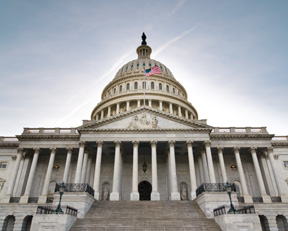
Tonight, CMS released the final Medicare Physician Fee Schedule (MPFS) payment rule for 2018. CMS is finalizing an overall update to physician payments of +0.41%, and the 2018 conversion factor will increase by $0.10, to $35.99 from 2017’s $35.89. Read on for more news….
Coding Policy Change for Biosimilars
In 2016, CMS finalized a policy to group biosimilar products based on a common reference product into one billing and payment code. This move was criticized by the biosimilar industry, over concerns that it would discourage innovation, leading to higher program costs in the future. In this year’s proposed rule, CMS requested comments on the policy and, based on feedback, will change the biosimilar policy in 2018. Starting in 2018, newly approved biosimilar products will have separate billing codes, even if they have a common reference product.
Final Rules for Medicare Diabetes Prevention Shrink Program from Proposed Three Years to Two; Reduce Payment by $140
Despite finalizing a start date for the Medicare Diabetes Prevention Program (MDPP) of January 1, 2018 in the 2017 PFS Final Rule, CMS proposed for 2018 to delay this for 90 days to allow for supplier enrollment, which isn’t slated to begin until January 1. Today, CMS finalized that proposal, and announced that providers may begin offering services under the MDPP benefit on April 1, 2018. In addition, although CMS had proposed to provide ongoing maintenance services to beneficiaries for a period of two years after one year of “core services” under the MDPP, they instead finalized an alternate proposal to provide only one year of maintenance services, so long as weight loss and attendance goals continued to be met. This renders the entire MDPP a two-year, rather than three-year endeavor for a beneficiary.
CMS finalized a number of issues as to eligibility criteria, including a clarification that if a beneficiary develops diabetes during the MDPP, they would not be removed from the program. In addition, they confirmed that women would not be excluded due to a diagnosis of gestational diabetes, but that end stage renal disease was an exclusion criterion both before and during the program, and finalized their proposal to limit MDPP participation to once per beneficiary lifetime, although they may reconsider this policy for beneficiaries with life-altering events in the future.
The proposed rule included payment for MDPP through a performance-based framework that makes incremental payments throughout the service period, with a maximum total payment per beneficiary of $810. Due to the shortened (two rather than three years), CMS has reduced this total to $670, with the largest payments coming in the first six months of the program. It remains to be seen whether this will lessen provider incentives for beneficiary success. Payment is based primarily on attendance at sessions and weight loss targets, and CMS is adding 15 (instead of the proposed 19) additional HCPCS billing codes to enable providers to bill for each of these incremental payments.
Hospital Outpatient Departments to see a Decrease in Nonexcepted Services, CMS Estimates $12 Million in Savings for Medicare
When implementing the Site-Neutral Policy passed in the Bipartisan Budget Act of 2015, for CY 2017, CMS established a new set of payment rates for hospital outpatient departments (HOPDs) that furnish nonexcepted items and services (services other than those provided by emergency departments). To do so, they created an adjustment factor and applied it to the Hospital Outpatient payment rate which generated the payment rate for these nonexcepted items and services.
For CY 2018, CMS is finalizing an additional 20 percent reduction to the payment rate, which is slightly less than the 25 percent proposed. Specifically, the final policy will change the PFS payment rates for these services from 50 percent of the OPPS payment rate to 40 percent of the OPPS rate. CMS believes that this adjustment will provide a more level playing field for competition between hospitals and physician practices by promoting greater payment alignment. CMS believes that this will save Medicare $12 million in CY 2018.


